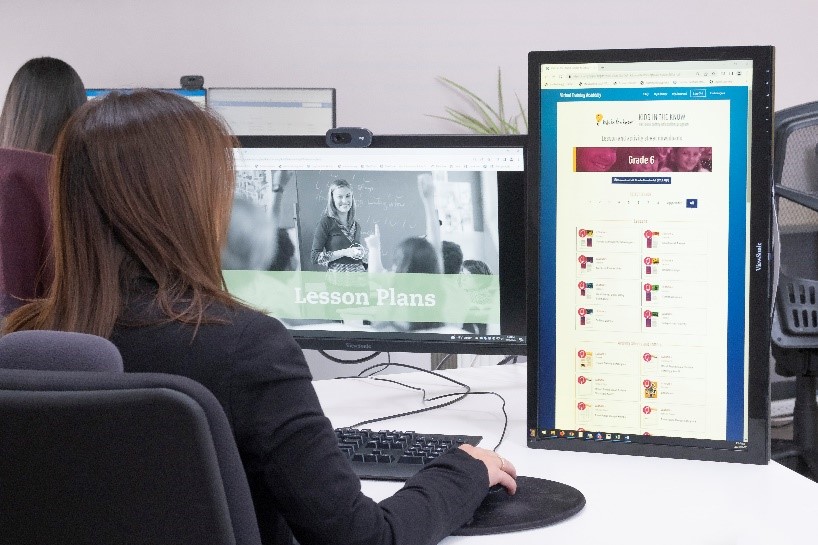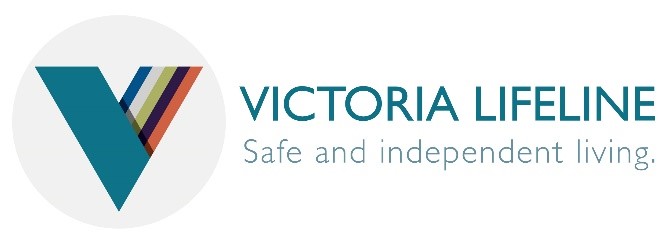 |
Issue 31 | March 2023 |
|
Good Customer Service Attracts More Customers |
Accessibility means people of all abilities have the opportunity to participate fully in everyday life. Improving accessibility is the right thing to do and what benefits people with disabilities, often benefits everyone. |
People disabled by barriers have an estimated buying power of over $50 billion annually in Canada. They do business, shop and travel with their friends and families, just like everyone else. Learning how to eliminate barriers may attract customer loyalty and improve services for everyone. |
Taking steps to become a more accessible business can be easy and often can be done at little to no cost. Accessible Customer Service can be as simple as asking “How can I help you?” |
Other considerations under the Accessibility Standard for Customer Service include: meet the communication needs of customers, clients, or members allow assistive devices, such as wheelchairs, walkers, oxygen tanks and communication devices welcome customers with support persons, who are there to help welcome customers with service animals maintain accessibility features, such as automatic doors, ramps, or elevators, so they can be used as intended let the public know when and why an accessibility feature is unavailable invite customers to give feedback about accessibility features train staff on accessible customer service, including reasonable accommodations under The Human Rights Code (Manitoba) large employers with 50 employees or more must document (in-print) their customer service policy large employers with 50 employees or more must also provide notice that their customer service policy is available in accessible formats, on request
|
The Manitoba Government introduced the Accessibility Standard for Customer Service in 2015. This standard addresses business practices and training requirements to provide better customer service to people with disabilities. Businesses and organizations with at least one employee have certain obligations under this standard. |
AccessibilityMB.ca has a wealth of useful resources relating to the Accessibility Standard for Customer Service, The Accessibility for Manitobans Act and the other standards under the Act. Learn more about your organization’s role and responsibility by visiting the website today. |
|
Accessible Transportation Standard Regulation 60-Day Public Consultation |
Whether you are a person with a disability, a community organization, a municipality, or a transportation provider (or other person/organization), we want your feedback. |
The Accessible Transportation Standard Regulation is the fourth standard under The Accessibility for Manitobans Act (AMA). The AMA sets out a path to remove, reduce and prevent barriers through the development of accessibility standards in five fundamental areas of daily living. |
In 2020, the Accessibility Advisory Council (Council) made their recommendations for an Accessible Transportation Standard to the Minister of Families. In developing their recommendations, the Council sought advice from a standard development committee, as well as comments from the public and community disability organizations. |
The Manitoba government is pleased to present its draft Accessible Transportation Standard Regulation for public feedback, based on recommendations from the Council. |
You can read the draft standard and FAQ’s at the Manitoba Regulatory Consultation Portal. |
Provide Your Feedback |
EngageMB: |
Visit the EngageMB website for an opportunity to provide feedback on the new Accessibility Transportation Standard. |
Participate in a Webinar: |
The Manitoba Accessibility Office is hosting a Zoom webinar on March 22, 2023, from 1:30 to 3:30 p.m. to hear your feedback on the proposed Accessible Transportation Standard. |
The webinar will provide an overview of the standard and offer the opportunity to provide your perspective and ask questions. |
ASL interpretation and close captioning will be available during the webinar and a recording will be available to those unable to participate in real-time on the AccessibilityMB.ca website. |
Click the Zoom link (or by phone, details below) to join the webinar on March 22, 2023, at 1:30 p.m. CST. |
One tap mobile +12042727920,,87639985132#,,,,*429681# Canada +14388097799,,87639985132#,,,,*429681# Canada Dial by your location +1 204 272 7920 Canada +1 438 809 7799 Canada +1 587 328 1099 Canada +1 647 374 4685 Canada +1 647 558 0588 Canada +1 778 907 2071 Canada +1 780 666 0144 Canada Meeting ID: 876 3998 5132 Passcode: 429681 |
Feedback Submission Deadline: |
Feedback submissions on the Accessible Transportation Standard are welcome until: April 9, 2023. |
Share Your Story: |
We’re interested in hearing from all Manitobans, including people with disabilities, persons with long-term health conditions or illness, seniors, caregivers, family, friends, and natural supports and others interested in this area. It helps us plan for future initiatives, such as public awareness campaigns and targeted educational and compliance activities. Use the story tool on EngageMB or email your story to MAO@gov.mb.ca. |
If you have any questions, require this information in an alternate format, or would prefer to provide your comments by phone, email or mail, please contact the Manitoba Accessibility Office (formerly the Disabilities Issues Office): |
Manitoba Accessibility Office 630 - 240 Graham Avenue Winnipeg MB R3C 0J7 Phone: 204-945-7613, Toll-free: 1-800-282-8069, Ext. 7613 Email: MAO@gov.mb.ca |
|
 |
Manitoba Accessibility Fund (MAF) Grant Program 2023 Second Intake Period Now Closed |
Thank you to all the organizations that submitted an application to the Manitoba Accessibility Fund grant program between January 30 and March 10, 2023. |
During this intake period: Over 160 applications were received Over 250 participants attended four information webinars (3 sessions in English and 1 session in French) American Sign Language (ASL) interpretation was provided during the informational webinars ASL videos of MAF materials were posted on AccessibilityMB.ca Information about the MAF grant program was added to the Manitoba Grants Online portal
|
The MAF Selection Committee will be reviewing the eligible applications over the next six to eight weeks. In early May 2023, each applicant will receive a formal notification of decision about their application, either approval or non-approval for their proposed project. |
Please visit AccessibilityMB.ca/fund.html for status updates on the grant program in 2023-24, and access the MAF information presentation, application guidelines, Frequently Asked Questions, and glossary of terms. |
|
Spotlight on Manitoba Accessibility Fund Projects: |
The Manitoba Accessibility Fund is proud to spotlight these amazing projects this month - Prairie Theatre Exchange, Canadian Centre for Child Protection, Victoria Lifeline and The Accessible Sports Expo. All these projects were funded during the pilot year of the program. |
Prairie Theatre Exchange |
Prairie Theatre Exchange (PTE) prides itself on being a fully accessible facility. It has begun a commitment to expanding its accessible programming options at all live plays in its season thanks to the funds it received from the Manitoba Accessibility Fund. These options are: Relaxed, ASL and Audio Described Performances. |
Relaxed performances are sensitive to and welcoming of patrons who may benefit from a more comfortable environment, including, but not limited to, those on the autism spectrum, with sensory and communication disorders, or with learning disabilities. The sounds and lights at a relaxed performance are slightly modified to be less startling, and the house lights are kept on at a very low level throughout the performance to allow for safe movement around the theatre. A quiet space is also available in the lobby for those who need it during performances. |
Attending a relaxed performance doesn’t mean the show will be different. It’s the same quality of performances, and any adjustments made to the technical aspects are designed to be unobtrusive and stay true to the spirit and enjoyment of the play envisioned by the creative team. |
ASL interpreted performances have been the most popular accessibility offering to date. Each play in the PTE season features one performance with ASL interpretation, to welcome patrons for whom that service will reduce a barrier to seeing live theatre. The interpreters are situated to the side of the stage area and can be easily viewed throughout each performance. |
 |
In an audio described show, blind and low-vision audience members can listen to a private description of the visual aspects of the performance described live via a small radio receiver and personal headset. |
It’s a live verbal commentary by a trained describer occasionally speaking "between the lines" to describe entrances, exits, actions, and key props, as well as descriptions of set and costumes before the show starts. Headsets for audio description are available in the lobby before each performance. |
The Manitoba Accessibility Fund has made it possible for PTE to expand its accessibility offerings. PTE is committed to offering these accessible options going forward for the balance of this season and beyond. “This initial year is important to building the base for these activities, and learning how we can best incorporate them into our process,” said Carman Johnson, Director of Development with Prairie Theatre Exchange. |
PTE looks forward to not only being a home for new, Canadian theatre, but one where everyone can feel comfortable attending theatre. |
Canadian Centre for Child Protection |
With support from the Manitoba Accessibility Fund (MAF), the Canadian Centre for Child Protection (C3P), was able to update and increase the accessibility of an important training resource for educators across the province. Working to enhance compliance with the customer service standard and align with The Accessibility for Manitobans Act, C3P’s Implementing Kids in the Know online training now has closed captioning, transcripts for all content, and playback speed controls. |
The online training is available to all educators who use the Kids in the Know program (KIK), C3P’s national, bilingual, personal safety education program designed to reduce the risk of child sexual victimization online and offline. |
 |
The program is used in thousands of classrooms across Canada, with 97 per cent of divisions in Manitoba having schools using the program. The updated online training is an important component of resource implementation, as it provides an overview of the program, reviews teaching methods used in the lessons, offers considerations prior to starting the program, and includes suggestions for how to introduce lessons to students in a fun, age-appropriate way. |
As a result of the funding for this project, barriers to training access have been diminished. The increased accessibility has led to greater use and efficacy of the training and KIK, equipping more educators with information to safeguard children from abuse. It is expected that over the coming year, 30,000 Canadian educators, of which 10,000 would be from Manitoba, will access this updated training. |
Victoria Lifeline |
 |
As a not-for-profit service, Victoria Lifeline has been helping Manitobans lead safe and independent lives for 35 years. Making sure our service is accessible to everyone has always been important to our organization, so we were thrilled to receive a grant from the Manitoba Accessibility Fund to optimize our website for accessibility and remove any barriers to communication. The Victoria Lifeline website serves as an information and resource hub for both current/prospective clients, caregivers, healthcare professionals, partners, and community stakeholders. |
The website includes important fall prevention tools, caregiver support, a healthy living blog, and a newly developed senior service guide. Given our user demographic, our goal was to have an engaging and inclusive website for people of all ages and abilities and to increase site usability. |
Working with Web Wizards, the project kicked off last year with an overview of the website and we quickly realized that many of the pages were incompatible with a screen reader, a tool that enables people with visual impairments to use a computer. We had also received input from a client that regularly prints out web pages for improved readability who had issues with our site due to formatting. We re-designed several pages and tested the whole site with a screen reader to ensure it was compatible. We also added closed captioning to all our videos, and a manual accessibility font re-sizer in the top navigation bar that can triple the size of the font. We are currently in the process of re-designing our online senior service guide to display PDF text in larger type. |
Once the website updates are complete, we will engage some of our clients to review the site and provide feedback on the changes. We’d like to take this opportunity to thank the Manitoba Accessibility Fund for providing funding to organizations like ours to remove barriers to communication! |
Article submitted by: Krystal Stokes, Director of Marketing - Victoria Lifeline |
The Accessible Sports Expo |
The Accessible Sports Expo focused on removing barriers to sports participation for people with disabilities. This event occurred November 13, 2022, and provided Manitobans with an opportunity to learn about accessible sports offered within the province. The Accessible Sports Expo was featured on a recent episode of the Hobbilities on CBC Radio. |
|
The featured story about the Accessible Sports Expo begins around the 12-minute mark in the recording. |
|
Manitoba Government Creates $12.6-Millon Hearing Aid Grant Program for Seniors with Hearing Loss |
Program Tied to Priorities Highlighted in Provincial Seniors Strategy: Johnston |
The Manitoba government is creating a new $12.6-million grant program that will assist eligible older Manitobans experiencing hearing loss to cover the expense of testing, fitting and purchasing new hearing aids, Seniors and Long-term Care Minister Scott Johnston announced today. |
“Our government recognizes hearing loss as priority concern for seniors and with this grant more Manitoba seniors who require hearing aids will have the financial means to access them regardless of income level,” said Johnston. “Hearing aids provide valuable benefits to improve quality of life in a number of important ways such as fully participating with family, friends and co-workers, while also avoiding the isolation that can be associated with hearing loss.” |
According to Department of Health statistics, nearly 4,000 seniors over the age of 65 reported hearing loss during a physician visit in 2021 and roughly 25 per cent of seniors have hearing loss at a level that would benefit from hearing aid use. |
The hearing aid grant of up to $2,000 is available to all Manitobans who meet the following eligibility criteria: |
age 65 or over; family income below $80,000 in the previous year; have documented hearing loss; and have been prescribed hearing aids by an audiologist or otolaryngologist.
|
“For those who are hearing impaired something as simple as a hearing aid can make all the difference in quality of life,” said Susan Sader, executive director, Good Neighbours Active Living Centre. “The Manitoba government is to be commended for listening to Manitobans who struggle with hearing loss and for providing a program that will help many stay active and engaged in the community.” |
Untreated hearing loss is linked with decreased word recognition, difficulty communicating, increased risk of falls, social isolation, cognitive decline and dementia. |
“We have received many heartbreaking emails and phone calls from seniors or their caregivers asking for help because they need hearing aids but could not afford them,” said Jo-anne Jones, president, Canadian Hard of Hearing Association Manitoba Chapter. “This new grant is a great step in ensuring many more Manitoba seniors will have the hearing aids they need and better healthier lifestyles as a result.” |
The Manitoba government will begin accepting applications later this spring. |
The new program aligns with strategic priorities including financial security and safe, inclusive and accessible communities, which are highlighted in Manitoba, A Great Place to Age: Provincial Seniors Strategy. |
|
|
In the News: |
|
Making content accessible goes well beyond websites and accessible documents. Businesses and organizations with social media accounts should consider reviewing their social media posts to ensure content is easily accessible for all users. Accessibility of social media posts can be improved by including text captioning for videos, image descriptions, proper usage of hashtags and more. |
|
|
Hollywood’s biggest night was more accessible than ever. The 95th annual Oscars increased accessibility to make the show even more inclusive. The show featured American Sign Language interpreters for the first time for both the live pre-show and full ceremony. This was one among several accessibility additions added this year. |
|
|
Upcoming Webinars: |
Accessible Transportation Webinar |
The Manitoba Accessibility Office is hosting a Zoom webinar on March 22 2023 from 1:30 p.m. to 3:30 p.m. to hear your feedback on the proposed Accessible Transportation Standard. |
To attend, click the Zoom link to join the webinar on March 22, 2023 at 1:30 pm. |
One tap mobile +12042727920,,87639985132#,,,,*429681# Canada +14388097799,,87639985132#,,,,*429681# Canada Dial by your location +1 204 272 7920 Canada +1 438 809 7799 Canada +1 587 328 1099 Canada +1 647 374 4685 Canada +1 647 558 0588 Canada +1 778 907 2071 Canada +1 780 666 0144 Canada Meeting ID: 876 3998 5132 Passcode: 429681 |
Important Dates: |
Manitoba Accessibility Fund 2023-24 intake period is now closed. Accessible Transportation Standard Regulation feedback must be provided no later than March 25, 2023. The Accessibility Standard for Information and Communication comes into force for the Manitoba government on May 1, 2023
|
Awareness Dates: |
|
Manitoba Accessibility Office Staffing Updates: |
Chantal Boissonneault joined the Manitoba Accessibility Office on March 13, 2023 as our new MAF Financial & Administrative Clerk. Please join us in welcoming Chantal to her new role! |
 |
|